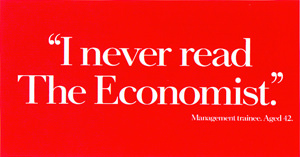Newsweeklies on the Brink
So, Time and Newsweek have had to reinvent themselves in the face of flagging circulation numbers and built-in relevance issues (i.e., they were created at a time when there were too many newspapers, crazy as that sounds now), but as The Atlantic's Michael Hirschorn notes, there's one weekly news digest that's going strong while others falter.
So, Time and Newsweek have had to reinvent themselves in the face of flagging circulation numbers and built-in relevance issues (i.e., they were created at a time when there were too many newspapers, crazy as that sounds now), but as The Atlantic’s Michael Hirschorn notes, there’s one weekly news digest that’s going strong while others falter.
Your support matters…The Atlantic via Arts & Letters Daily:
In the digital age, with its overabundance of information, the modern newsweekly is in a particularly poignant position. Designed nearly a century ago to be all things to all people, it Chaplin-esquely tries to straddle thousands of rapidly fragmenting micro-niches, a mainframe in an iTouch world. The audience it was created to serve—middlebrow; curious, but not too curious; engaged, but only to a point—no longer exists. Newsweeklies were intended to be counterprogramming to newspapers, back when we were drowning in newsprint and needed a digest to redact that vast inflow of dead-tree objectivity. Now, in response to accelerating news cycles, the newspapers have effectively become newsweekly-style digests themselves, resorting to muddy “news analysis” now that the actual news has hit us on multiple platforms before we even open our front door in the morning.
Given that even these daily digests are faltering, how is it that a notionally similar weekly news digest—The Economist—is not only surviving, but thriving?
Independent journalism is under threat and overshadowed by heavily funded mainstream media.
You can help level the playing field. Become a member.
Your tax-deductible contribution keeps us digging beneath the headlines to give you thought-provoking, investigative reporting and analysis that unearths what's really happening- without compromise.
Give today to support our courageous, independent journalists.






You need to be a supporter to comment.
There are currently no responses to this article.
Be the first to respond.